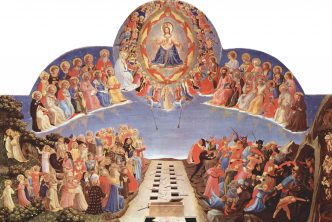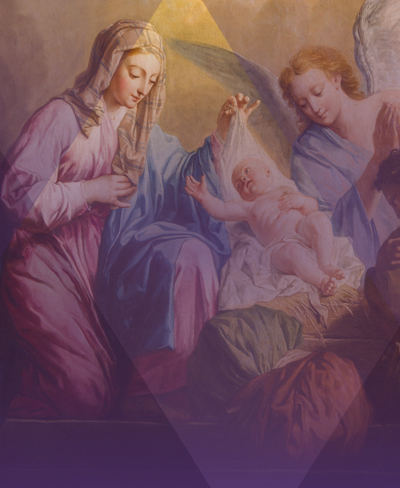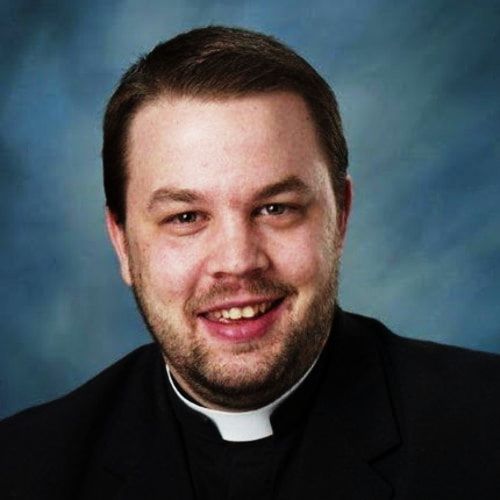More of Peter Kreeft’s work is finally available in Verbum, and now on Pre-Pub we have three fantastic collections and a bundle that includes 27 volumes of his work.
Now you can get:
- The Peter Kreeft Theology Collection
- Peter Kreeft’s Socratic Dialogues
- The Philosophy and Apologetics Collection
all for over 20% off today.
Or—save an extra $45 and get all of these works in the Peter Kreeft Bundle (27 volumes).
Peter Kreeft, the world-renowned Catholic apologist and convert from Protestantism, is widely known as the “C.S. Lewis of Catholicism,” in large part due to his extremely intelligent and approachable apologetic style.
These volumes bring Kreeft’s years of research, debate, and counseling experience to bear on tough concepts, with a consistently clear and concise voice that is very much his own.
Now you can get 27 volumes of some of his post popular work, including his “Socrates Meets” series where Kreeft puts modern philosophers and their ideas to the test using the Socratic method.
I thought this would be a great opportunity to post a short excerpt from his book Catholic Christianity, giving you a sneak peek at the text.
Kreeft’s work is rich in citations of the Scriptures and the Catechism of the Catholic Church; in Verbum, this collection comes to life as all these citations link to their sources.
Here’s a brief excerpt from the introduction of Catholic Christianity:
Most converts from Protestantism say they have only added to, not subtracted from, their Protestant faith in becoming Catholics. A Catholic Christian is a “full gospel” Christian, a full or universal Christian (“Catholic” means universal). As Lewis pointed out in the preface to Mere Christianity, “mere” Christianity is not some abstract lowest common denominator arrived at by stripping away the differences between Protestant and Catholic or between one kind of Protestant and another. It is a real and concrete thing; and Catholicism is that thing to the fullest, not that plus something else.
Far from alienating Catholics from Protestants, this unifies them at the center. The part of the old Baltimore Catechism that a Protestant would affirm the most emphatically is its heart and essence, which comes right at the beginning: “Why did God make you? God made me to know him, love him, and serve him in this world and to enjoy him forever in the next.” And the part of the Protestant Heidelberg Catechism that a Catholic would affirm the most emphatically is its heart, which also comes right at the beginning: “What is your only comfort in life and in death? That I belong body and soul, in life and in death-not to myself but to my faithful Savior Jesus Christ, who at the cost of his own blood has fully paid for all my sins and . . . makes me wholeheartedly willing and ready from now on to live for him.”
I also thought of calling the book What Is a Catholic? The emphasis should be on the word “is.” But it seldom is. When I ask my students what a Catholic is, they tell me what a Catholic believes or (more rarely) how a Catholic behaves or (occasionally) how a Catholic worships. These are the three parts of this book, but the root of all three, and the unifying principle of all three, is the new being, the supernatural life, the “sanctifying grace”, that is the very presence of God in us. The Catechism of the Catholic Church never loses sight of this essence and, therefore, of this same unity among its four parts. It is the very same thing, the same reality, that (I) the Creed defines, (2) the Commandments command, and (3) the sacraments communicate. Therefore, at the beginning of its section on morality, the Catechism connects these three and says: “What faith confesses, the sacraments communicate: by the sacraments of rebirth, Christians have become ‘children of God’ [Jn 1:12; I Jn 3:1], ‘partakers of the divine nature’ [2 Pet 1:4]. Coming to see in the faith their new dignity, Christians are called to lead henceforth a life ‘worthy of the gospel of Christ’ [Phil 1:27]. They are made capable of doing so by the grace of Christ and the gifts of his Spirit, which they receive through the sacraments and through prayer” (Catechism of the Catholic Church [hereafter CCC 1692). Every part of this organic body that is the Catholic faith is connected through its heart, which is Christ himself, “this mystery, which is Christ in you, the hope of glory” (Col 1:27). That is how St. Paul summarized the central mystery of the faith, and therefore that is how the Church has always taught it, and therefore that is how the Catechism teaches it, and therefore that is how this book teaches it. Its peculiar specialty is not to specialize; its peculiar angle is to have no angle but to stand up right at the center.
Half a century ago such a book would have been superfluous, for Catholics knew then twenty times more than they know now about everything in their faith: its essence, its theology, its morality, its liturgy, and its prayer; and there were twenty times more books like this one being written. The need was less, and the supply was more. Today the need is much more, and the supply is much less. Since “nature abhors a vacuum”, spiritually as well as physically, I offer this unoriginal “basic data” book to those Catholics who have been robbed of the basic data of their heritage.
For the first time since the Council of Trent, in the sixteenth century, the Church has authorized an official universal catechism, the Catechism of the Catholic Church, because the current crisis is the greatest since the Reformation. All Catholics now have a simple, clear, one-volume reference work to answer all basic questions about what the Church officially teaches. There is no longer any excuse for the ignorance, ambiguity, or fashionable ideological slanting (at any angle) that has been common for over a generation. No one can be an educated Catholic today without having a copy of this Catechism and constantly referring to it. Let no one read this book instead of that one.
The expressed aim of the Catechism was defined as follows: “This catechism aims at presenting an organic synthesis of the essential and fundamental contents of Catholic doctrine, as regards both faith and morals, in the light of the Second Vatican Council and the whole of the Church’s Tradition. Its principal sources are the Sacred Scriptures, the Fathers of the Church, the liturgy, and the Church’s Magisterium” [living teaching authority]. “It is intended to serve ‘as a point of reference for the catechisms or compendia that are composed in the various countries’” (CCC II).
This book is an attempt to be no more and no less than an extension of that.
As you can see, Kreeft has already referenced the Catechism and numerous Church documents multiple times. In Verbum these references are all active, letting you jump from Kreeft’s text straight to the Catechism.
With more than 5800 pages in 27 volumes, this bundle is one you won’t want to miss. Get the whole bundle today for 21% off!
Have a favorite Peter Kreeft talk or book that you’d recommend? Let us know in the comments!






My favorite work of his has to be “Three Philosophies of Life”, which I see is included in the Theology collection. I read it in college and found it to be a lovely meditation on Ecclesiastes, Job, and the Song of Songs, showing how they each provide one interpretation of the human experience in “this vale of tears”. I’ve given that particular book away several times to friends as a good introduction to both philosophical thought and to theological reflection on the Scriptures.
As an apologist, I’ve also found his work, “The Handbook of Christian Apologetics”, to be quite useful. He co-wrote it with Fr. Ronald Tacelli, which is why I suspect it’s not included in this collection, but it’s well worth seeking out. Kreeft is a forward-thinking scholar who has consistently anticipated the trends of modern American culture, specifically in regards to relativism and apathy. His blunt tone and underlying sense of joy serve his readers well. This is a great resource to have at hand!
The reason Handbook of Christian Apologetics isn’t included is because Logos has already been selling it for years.
That’s good to know! Thanks for the heads-up!